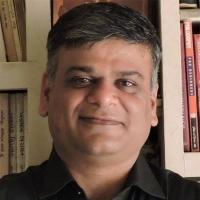
The recent arrest of Delhi chief minister Arvind Kejriwal has reignited the recurring debate that Prime Minister Narendra Modi, worried about his party’s success in the upcoming Lok Sabha elections, is acting out of fear and agitation, prompting him to suppress the opposition. Critics have referenced several sayings that suggest autocrats are inherently fearful.
It is surprising to note that some still believe that it is Modi’s desperation that compels him to resort to extreme measures such as the arrest of an incumbent chief minister, the freezing of Congress’s bank accounts, pressuring opposition members to defect to the Bharatiya Janata Party (BJP) and the prior suspensions of opposition leaders like Rahul Gandhi and Mahua Moitra from parliament, among other actions.
This belief ,that Modi is politically vulnerable or desperate, has led some of his detractors to a different plane of misconception. It fosters the optimistic view that Modi himself anticipates defeat in the electoral arena, thereby giving the opposition a reasonable chance to triumph over him, despite the disorganiSed state of the INDIA coalition and blow after blow dealt to it directly or indirectly by the Modi sarkar.
To interpret the government’s overtly bold actions as a sign of Modi’s weakness would be a mistake of complacency and a classic error by the opposition and analysts who fail to learn from the past.
Setting aside predictions about election outcomes, it’s clear that there’s no significant public outcry, or complete dissatisfaction in the streets, against this government’s numerous transgressions. A myriad of pressing issues could have significantly embarrassed the government, including the complete disregard for serious unrest in Manipur, the border situation in Ladakh, harbouring individuals like Brij Bhushan Singh while extolling the virtues of women’s empowerment, presenting horse-trading as a legitimate political tactic to seize power with absolute impunity, and the use of Pegasus software for surveillance, among others.
The electoral bond scam is a recent and significant addition to this list. The institutionalisation of corruption and extortion, as evidenced by the electoral bonds scheme – which was declared unconstitutional after seven years – should have critically undermined Modi’s claim of ‘Na Khaunga, Na Khane Dunga’ (I will neither engage in nor allow corruption).
Yet, a considerable segment of the population, swayed by polarisation and the narrative of ‘vikas’, appears indifferent to these disclosures. Modi’s substantial following seems unconcerned about his lack of unscripted press conferences over two terms. Moreover, even the opposition parties have not mobilised public demonstrations over the electoral bond issue, which some analysts consider to be the largest scam and extortion racket in India since its independence.
Some critics suggest that the array of issues facing the government may be causing a sense of insecurity, leading to drastic measures that challenge the essence of a robust electoral democracy. However, examining Modi’s track record over the past two decades, it appears his actions are more aligned with crafting his own narrative and shifting the discourse, rather than out of a fear of losing elections.
The approach of Modi and his associate and Union home minister Amit Shah can be broadly encapsulated in several key points:
V for Victory, W for Whitewash: Modi is perpetually in campaign mode. While the claim of working 18 hours a day without a break may be debatable for Modi as prime minister, it seems plausible for Modi the campaigner. He is always on the move, waving flags for the new trains, conducting simultaneous multiple inaugurations through video, hoping from one temple to another, changing clothes many times a day, and hogging the limelight in every possible manner thanks to the IT cell people on social media and obedient TV channels. His quest for victory is not just about winning; it’s about achieving absolute dominance, as indicated by the slogan ‘Congress-free India,’ which essentially translates to an ‘Opposition-free India.’
Stay Hungry, Stay Hawkish: Neither Modi nor Shah are ever satisfied with their successes. Triumphs do not render them humble or gracious towards the opposition and media; they are always striving for more, pushing harder as they win more. Rashtriya Swayamsevak Sangh (RSS) and affiliated organisations have a long history of surviving and flourishing through public hostility. The fierceness, bitterness, and experience of rabble-rousing as an opposition party are still with them. They leave nothing to chance and would go to any length to add one more seat to their tally.
Sports sans Sportsmanship: Previous governments, even the BJP government led by Atal Bihari Vajpayee, despite their strong ideological stances, did not attempt to monopolise the discourse or harbour ill-will towards opposition leaders. There was mutual respect and acknowledgment of each other’s roles in democracy. This dynamic has significantly deteriorated during Modi’s tenure. His actions suggest a lack of room for opposition or independent media, despite occasional lip service. This attitude reflects not a fear of losing, but an aggressive stance against democratic spaces and a determination to achieve total control.
Ek Dhakka Aur Do (One More Push): This phrase, chanted during the demolition of the Babri Masjid, resonates as the country approaches the 50th anniversary of the emergency declared by former Prime Minister Indira Gandhi. The democratic pillars of India are facing a systematic onslaught. The government’s radical actions could be seen as an informal call for ‘ek dhakka aur do’ against established democratic norms and the constitutional checks and balances designed to prevent the misuse of power by those elected.
Urvish Kothari is a writer and satirist based in Gujarat.






